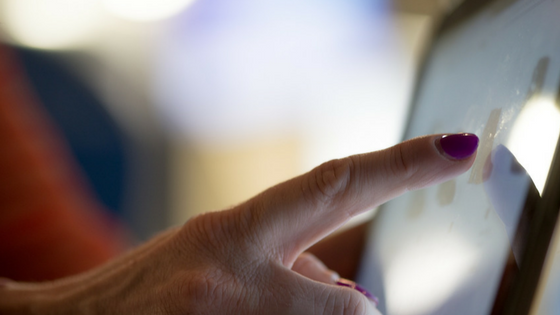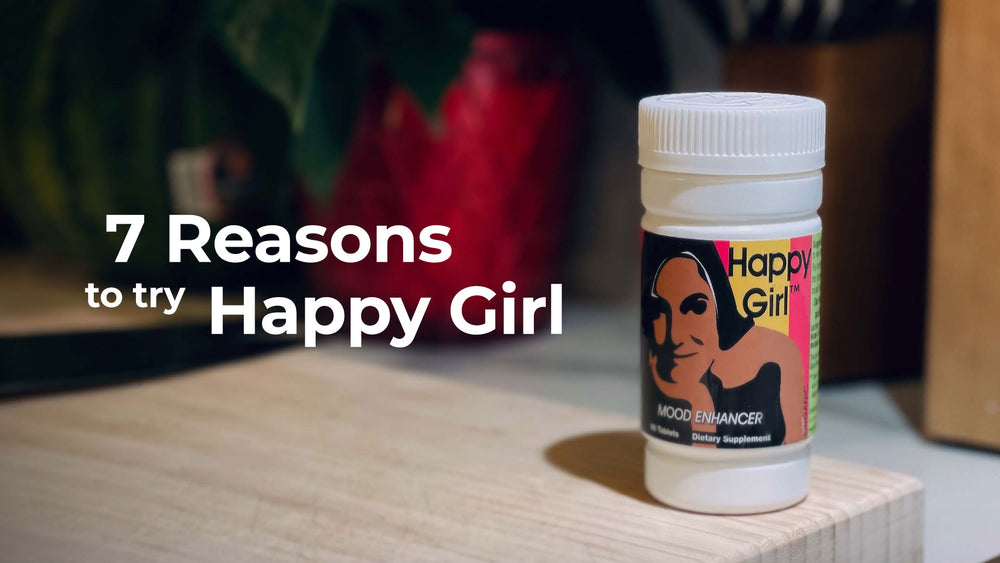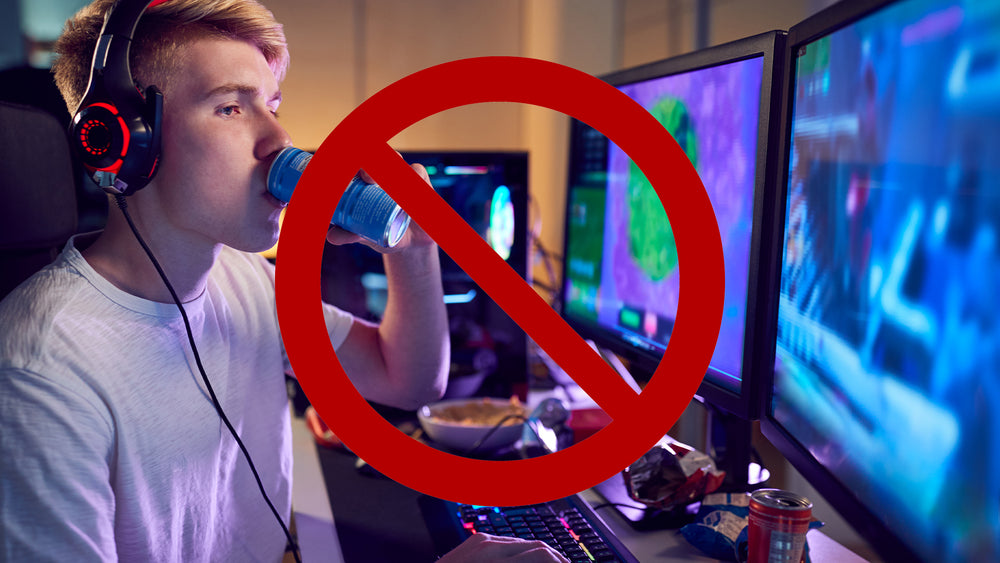People often ignore the positive uses for the net and social media, and get caught up in political arguments, celebrity gossip and other time-wasters. To make the most of your online experience, concentrate on reacquainting with good friends, career networking and forming new online friendships with individuals who share your interests. The internet is also a useful tool for learning new skills and even earning a living with freelance or work-at-home-jobs.
If you're using social media or web surfing hours a day as an excuse not to do work, run errands or visit friends, it may be indicative of a deeper problem, like depression.
A study conducted at the University of Belgrade in Serbia concluded that the introduction of social media into daily life has changed the way people communicate, and may cause or intensify depression in some users. The researchers also noted that digital use led to less intensity in face-to-face communication within families and the social environment as a whole.
The rise in digital communication – Smartphones, social media, texting, etc – has taken over society during the last 10-12 years, though emails and online chats have been around much longer. This short timeframe doesn't lend itself to many conclusive scientific studies, but most of us have experienced firsthand how social media and the digital lifestyle have uprooted old-fashioned, in-person communication.
Excessive use of “bad internet” may distort your sense of reality. You can read bad news (much of it fake) and become paranoid that awful things may happen to you or someone close to you. Sharing fake news (even though you don't know it's fake), may pass along that fear and paranoia to someone else.
Here are ten tips for doing a full or partial digital detox.
Buy Happy Girl Mood Enhancing Supplement to Feel Better Naturally
HAPPY GIRL helps you to feel calmer, more energetic, and promotes an overall feeling of well-being.
1. Do a Facebook Detox
More people are doing a Facebook detox (or total social media or digital detox) and seeing a marked improvement in their lives. The reasons for logging off social media vary, from trolling and bullying to feeling disgusted or bored by many of the posts.
Facebook can be pretty boring, but helpful, if you use it to keep in touch with friends and relatives across the country, and nothing else. For many people, though, Facebook feeds and other social media platforms are filled with posts from causal acquaintances and people they've never met in person or even texted.
If you experience any of the following problems, you'll probably spending too much time on Facebook.
- Getting in Facebook arguments with people you've never met (and probably will never met) in person, which makes you feel miserable and raises your blood pressure.
- Reading about other peoples' (supposedly) exciting lives and feeling jealous or inadequate.
- Joining a chorus of sycophants congratulating braggart friends on a regular basis, or consoling someone who's always in trouble.
- Feeling you need to outdo other friends' posts, and constantly posting selfies, pictures of your meals, purchases, and pets to validate your self-worth.
Facebook isn't the only social platform that drains valuable time and causes self-esteem issues. Instagram, Snapchat and other all-visual platforms make it harder to share photos without a lot of filtering and Photoshopping, and this may cause more insecurity for some users than Facebook. Some people may feel apprehensive about sharing lots of photos if they don't have a rollicking social life. And if you don't want a Smartphone, you'll feel left out, since these apps offer no chance to post from a desktop computer, laptop or cheap cell phone.
Buy Happy Girl Mood Enhancing Supplement to Feel Better Naturally
HAPPY GIRL helps you to feel calmer, more energetic, and promotes an overall feeling of well-being.
2. Use the Internet Wisely to Boost Your Spirits and Rejuvenate
The internet is only a time sink if you don't know how to use it properly. There are plenty of educational, arts and charity websites for productive web browsing.
Have some free time in front of the computer and want to spend it wisely, try one of the following instead of playing Candy Crush Saga.
- Discuss gardening, sewing, fishing or another hobby on a bulletin board
- Take an online course
- Read free ebooks
- Network for a new job
- Contribute to Wikipedia
Online discussion boards may be a lifeline for many people who are unable or unwilling to seek help face-to-face. People who suffer from social anxiety, depression, or verbal or emotional abuse are more likely to participate on online groups than attend in-person therapy. Once participants feel comfortable online, it may lead to them seeking onsite help.
When you're recovering from surgery and can't go outside, browsing the net helps you pass the time and prevents boredom and depression.
3. Use the Internet Responsibly at Work
Studies show taking a break from work by browsing social media or the net can be a good thing. It provides a much-needed respite from work, and can energize you.
A 2011 study found employees who took a break to surf the internet for ten minutes made were more productive and focused when they returned to work than workers who didn't get a digital break.
If you're in the middle of a long project, taking a 10 or 15 minute break to stretch and watch a few music videos or browse the net. Use the quick rest break to clear your mind so then you can finish your work without getting burnt out or frustrated.
Buy Happy Girl Mood Enhancing Supplement to Feel Better Naturally
HAPPY GIRL helps you to feel calmer, more energetic, and promotes an overall feeling of well-being.
4. Turn off social media and email notifications
Shut off social media and email notifications on your Smartphone. Do you really need to read about a Facebook friend's dog while you're at a baseball game? The chime or pinging of email notifications never seems to stop, especially if you have lots of chatty online friends or belong to many online groups.
Learn how to manage your social media notifications efficiently. Turn off notifications and check emails and chat manually, at set times. If you need to check social media for an urgent email, direct message or post, turn on your email alert, then turn it off again once you've received the message.
5. Limit Email Checks
Some experts recommend you check emails no more than twice a day. If your work is time-sensitive you may need to do it four or five times a day - but not every ten minutes. Unless you're waiting for an email that must be answered immediately (and it doesn't happen that often, even in a business situation), log out of your email and get back to work. Once you stop being obsessive-compulsive with your emails, you'll realize how much time you waste scrolling
Another trick – sign in and out of your email account (or Facebook, Instagram or Twitter) after you use it. You'll be less inclined to sign in again to check random, trivial correspondence.
6. Social Media and Friendship
It's possible, even easy, to meet great people online if you know where to look.
The key is to meet people through similar interests and engage in discussions. This gets harder and harder to do on social media if your timeline is all a jumble of memes, music videos and cat pictures.
Online bulletin boards and Facebook groups are a better bet for meeting like-minded people online than a personal profile. Since these online meeting places focus on a common subject, you won't be floundering in a sea of scattershot links and photos. You can carry on substantive conversations. Some of these friends, like real-life friends, will fade away, but you'll find a common ground with others beyond the initial interest (gaming, a rock group, sports team, etc.) and form strong, more intimate friendships that may last a lifetime.
Comment on a blog or website you enjoy reading, and you ma strike up a conversation with other blog readers or the blog owner. This can lead to an online friendship or even a business connection.
Online friendships sometimes turn into real-life friendships or long-distance phone friendships. Even if the friendship stays online, it may be just as positive and nurturing as a face-to-face friendship. Don't discount anonline friend as being less important than an in-person one. An online friend who emails you and chats with you when you're going through bad times is a better friend than an offline friend who ignores you during a crisis.
Buy Happy Girl Mood Enhancing Supplement to Feel Better Naturally
HAPPY GIRL helps you to feel calmer, more energetic, and promotes an overall feeling of well-being.
7. Exercise Your Willpower
Even if you don't think you have enough willpower to stay away from the internet, it doesn't hurt to try. Set a schedule to check social media and emails a few times a day. If you can't cut down on your own, enlist an in-person friend of family member to help you.
8. Use Blocking Apps
When willpower alone won't keep you away from Facebook or internet browsing, a blocking app can keep from wasting time online. Offtime, BreakFree and other Smartphone apps track your time online, so you can see how long you really spend watching YouTube videos and other random stuff daily. You can also set parameters for when to stay off the Internet, and what websites to avoid completely.
Add the blocking app Nanny to your Chrome browser to reduce online temptation, or SelfControl and other apps to improve productivity and keep you away from time-wasters.
9. Be Pro-Active Against Cyberbullying
The trend of cyberbullying isn't going away anytime soon. Despite all the anti- bullyng campaigns and news stories, online bullies taunt children, teens and adults.
Avoid arguments online about politics or anything else. Excuse yourself and logoff (or just logoff) if the discussion becomes too heated. Remain tactful and don't call anyone names regardless of what they've said. If you feel you are being harassed, take screenshots and report the offending post to Facebook or the website or bulletin board moderator. Online bulletin boards and forums usually have one or more moderators to keep track of posts. Because they have fewer members, it's easier for moderators to find out when someone is being abusive. Facebook groups and pages have one or more moderators, and they can easily police inappropriate content before it gets out of hand.
Monitor your children's internet usage without invading their privacy. If you notice a change in your child's behavior, which includes one or more of the following signs, it may have been caused by cyberbullying.
- Skipping school
- Anxiety
- Depression
- Low Self-Esteem
- Alcohol or Drug Use
- Loss of Interest in Hobbies and Socializing
- Stays in Room When Not in School
Ask teachers and school officials about school rules regarding cyberbulling before anything happens.
Be aware that cyberbullying may occur anywhere online by complete strangers, so monitor your child's online activity, ask questions, and use anti-bullying software, if necessary.
When cyberbullying occurs, take screenshots of the offending posts and report them to the website and online provider. If the harassment continues, you may need to report it to law enforcement in your community.
10. Reacquaint Yourself With the Real World
Once you detox from social media and web browsing, you'll notice the following benefits:
- Reduced anxiety and depression
- Increased work productivity
- Better sleep
- More physical activity
- Better relationships with family and friends
- Increased awareness of the physical world around you
Too much internet and social media use can affect anyone negatively. If you find you're staying up late or getting up early to check social media, missing out on social events or postponing work projects, or neglecting face-to-face interaction with family or friends, it's time for a digital detox.
An Internet Detox Helps You Reap More Real-Life Health Benefits
A social media and internet detox can last a week, a month or even a year. You may find the longer you stay away from random internet use (which is different from using the internet for work or maintaining real-life friendships), the less desire you have to return.
Your physical health will improve after you reduce your internet use. You'll go outside more, walk more, and reap the benefits of Vitamin D (from sunshine) and fresh air. Since you won't be crouched over a phone or computer, it's less likely you'll scarf down fast-food or snacks instead of full, home-cooked meals. As you become healthier, you'll start to use vitamins and supplements to stay that way. Revv Instant Energy Wafers from Wheatgrass Love, gives you energy naturally to tackle all the real-life excitement you're encountering again.
Internet use is like anything else in your life. If it doesn't contribute to your social, mental or emotional health in a positive way, it's time to cut the cord – or the WiFi.
















